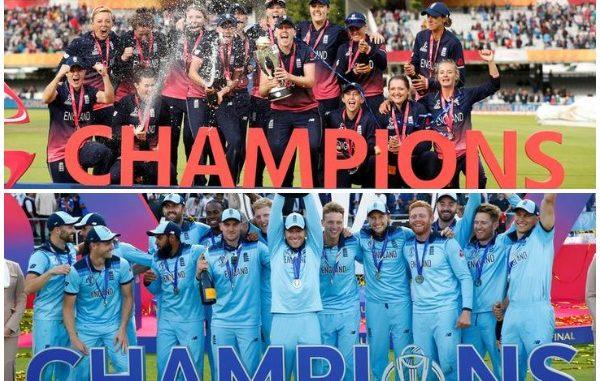
The International Cricket Council (ICC) today announced equal prize money for men’s and women’s teams at ICC events. The decision was taken at the ICC Annual Conference in Durban, South Africa and ensures the ICC Board fulfilled its commitment to reaching prize money equity by 2030 well ahead of schedule. Teams will now receive equal prize money for the equivalent finishing position at comparable events as well as the same amount for winning a match at those events.
ICC Chair Greg Barclay said: “This is a significant moment in the history of our sport, and I am delighted that men’s and women’s cricketers competing at ICC global events will now be rewarded equally.
“Since 2017 we have increased prize money at women’s events every year with a clear focus on reaching equal prize money and from here on in, winning the ICC Women’s Cricket World Cup will carry the same prize money as winning the ICC Men’s Cricket World Cup and the same for T20 World Cups and U19s too.
“Cricket is genuinely a sport for all and this decision from the ICC Board reinforces that and enables us to celebrate and value every single player’s contribution to the game equally.”
The ICC Board also confirmed the largest ever investment into the sport after the distribution model for the next four years was agreed. Every ICC Member will receive significantly enhanced funding with a strategic investment fund ring-fenced to drive global growth initiatives in line with the ICC Global Growth Strategy.
ICC Chair Greg Barclay said: “The success of our media rights and commercial programme for our next four-year cycle means we are able to invest more money than ever before into our sport.
“All Members will receive a base distribution and then additional revenue will be in relation to contribution to the global game both on and off the field. This is by far the largest level of investment ever to go into cricket and it’s a once in a generation opportunity for our Members to accelerate growth and engage more players and fans and drive competitiveness.
“I’m delighted that the board have also committed to a strategic investment fund which will help to accelerate the delivery of our Global Growth Strategy.”
The ICC Board also approved changes to ICC Sanctioning Regulations designed to support all Members to create sustainable revenue streams and develop the game whilst preserving and protecting the integrity of the sport and the welfare of those participating.
Moving forwards, new events requiring a sanction will need to ensure the playing XI of each team will include a minimum of seven local or Associate Member players to support the development of the game. Additionally, a solidarity fee will be payable from the organizing Member to the Home Board of a player to reflect the role the Member played in developing and promoting the sport globally.
The Chief Executives’ Committee approved changes to over-rate sanctions in Test cricket to balance the need for over-rates to be maintained and ensure players are appropriately remunerated. As such players will be fined 5% of their match fee for each over short up to a maximum of 50%. If a team is bowled out before the new ball is due at 80 overs, there will be no over-rate penalty applied even if there is a slow over rate. This replaces the current 60 over threshold.
ICC Men’s Cricket Committee Sourav Ganguly said: “The ICC World Test Championship has injected renewed energy into Test cricket giving it compelling context. In the last edition we only had 12 draws in 69 matches, and we want to ensure that trend continues whilst we’re giving fans the best value for money and keeping over-rates up.
“The Men’s Cricket Committee felt strongly that over-rate penalties in the form of WTC points deductions should remain but recommended that players should not have 100% of their match fee at risk. We believe this provides a balance between maintaining over-rates and ensuring we are not deterring players from playing Test cricket.
The CEC agreed this amendment would be retrospective and applied from the start of the current World Test Championship cycle.

Be the first to comment